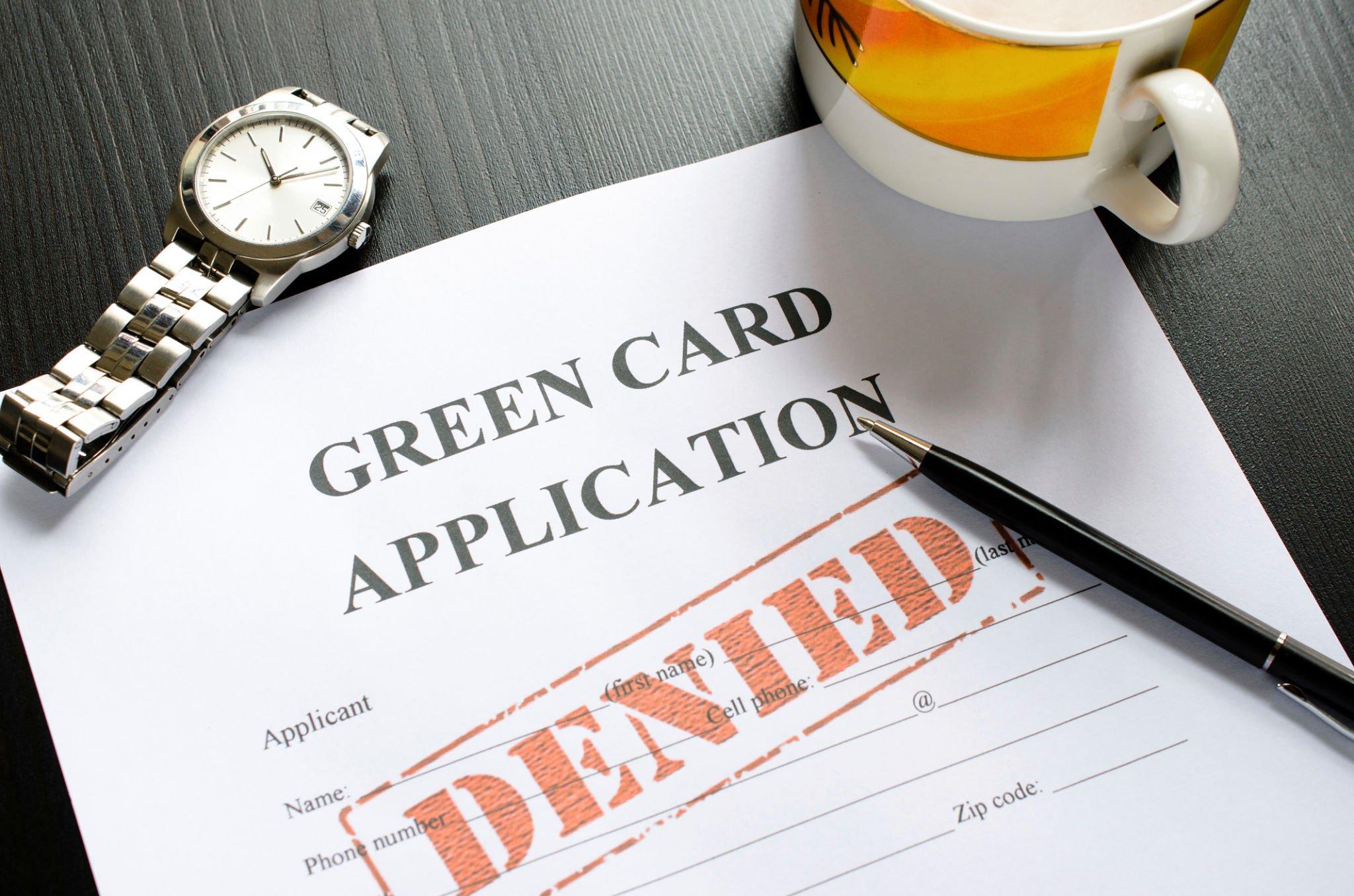If you’ve experienced the disheartening news of having your green card denied, you’re not alone.
Of the 9.2 million immigrants in the United States, less than 1 million apply for U.S. residence yearly. Acquiring lawful U.S. residence can be a complex and time-consuming process, with numerous barriers that make it difficult for non-citizens. Those who do succeed often find themselves in limbo, waiting for a response on their green card, visa, or citizenship application. But for some, the response is not what they hoped for: their application is denied. If this happens to you, it’s natural to feel discouraged, confused, and wondering why your green card application was denied.
In this blog, we will explore the various reasons for green card denials and what steps you can take if you find yourself in this situation.
What Makes You Eligible for a Green Card?
Before delving into the reasons for green card denials, it’s crucial to understand the eligibility criteria for obtaining a green card. To be eligible, an applicant must fall into one of the following categories:
- Family Sponsorship: If you have a close relative who is a U.S. permanent resident or citizen, they can sponsor your green card application.
- Employment-Based: A U.S. employer can sponsor your green card if willing to offer you a job and help you through the immigration process.
- Special Immigrant: Some individuals, such as religious workers or international broadcasters, may qualify as special immigrants.
- Refugee or Asylum Status: If you have been granted refugee or asylum status, you may be eligible to apply for a green card.
- Victim of Human Trafficking or Crime: Victims of human trafficking or certain crimes may be eligible for a green card through specific visa categories.
- Victim of Abuse: If you are a victim of abuse by a U.S. citizen or permanent resident, you may be eligible to apply for a green card.
- Continuous Residence Since January 1, 1972: If you have been residing in the U.S. continuously since January 1, 1972, you may be eligible for a green card.
Why Was Your Green Card Denied?
Now that we’ve covered the eligibility criteria for a green card, let’s delve into the common reasons for green card denials:
- Health Eligibility: Non-citizens wishing to obtain U.S. residence must undergo a medical examination conducted by a U.S. government-appointed physician. Your application can be denied if you have a contagious disease, refuse to receive mandatory vaccines, are a drug addict or substance abuser, or have a mental or physical condition that poses a threat to yourself or others.
- Criminal Record: While having a criminal record does not automatically disqualify you, certain crimes can result in automatic inadmissibility. Crimes involving moral turpitude (CIMTs), such as murder, rape, or fraud, are considered disqualifying. Other offenses like drug crimes, human trafficking, or money laundering can also lead to inadmissibility.
- National Security: If the U.S. government suspects that you threaten national security due to involvement in terrorist activities, totalitarian parties, or genocide, you may be deemed inadmissible.
- Public Charge: If your income is too low, you risk inadmissibility as a “public charge.” This means you might become dependent on government benefits. The USCIS considers factors like your health, age, family status, assets, education, and financial status to determine the risk of becoming a public charge. Having an affidavit of support from a family member or being sponsored by an employer or relative can mitigate this risk.
- Application Errors: Mistakes on your application can lead to denial. It’s essential to ensure that all forms and documentation are completed accurately, and common mistakes like leaving sections empty, failing to provide English translations, or not following photograph guidelines should be avoided.
What Are Your Options If You Were Denied?
If your green card application is denied, all hope is not lost. There are several options available to you, depending on the specific circumstances of your denial:
- Filing a Motion to Reconsider: If you believe your application was denied due to an error, you can file a motion to reconsider. This allows you to prove that a legal or procedural mistake led to the denial of your application.
- Filing a Motion to Reopen: If you have new evidence that could strengthen your case and was not available when you initially applied, you can file a motion to reopen. This evidence must be compelling and directly relevant to your application.
- Appeal to the Administrative Appeals Office (AAO): If you suspect that the USCIS made a procedural error in rejecting your application, you can file Form I-290B with the USCIS and request that an AAO officer reconsider your petition.
- Refile Form I-485: Refiling your application is an option if you want a fresh start. This allows you to resubmit Form I-485 with additional evidence to bolster your case.
- Request Reconsideration from a Judge: This is a last-resort option with potential risks, as it could lead to removal proceedings. To pursue this, you would need to refile your I-485 form and receive a Notice to Appear, after which you can make your case before a judge.
In cases of a green card denial, it’s crucial to consult with a qualified immigration lawyer who can guide and assist in determining the best course of action. These legal professionals have the knowledge and experience to help you navigate the complex immigration system and increase your chances of success.
At 360 Immigration Law Group, we have proudly served the Coral Springs community and surrounding areas since our establishment in 2017. Our commitment extends beyond geographical boundaries, as we serve clients across Coconut Creek, Pompano Beach, Boca Raton, Tamarac, Parkland, Deerfield Beach, Sunrise, Oakland Park, Fort Lauderdale, and Plantation. We offer meticulous legal support, conducting consultations in English, Spanish, or Portuguese via phone, Zoom, or WhatsApp. Contact us at 954.667.3660 for a free consultation. Our team is here to guide you through the process and explore your options for lawful U.S. residence.

